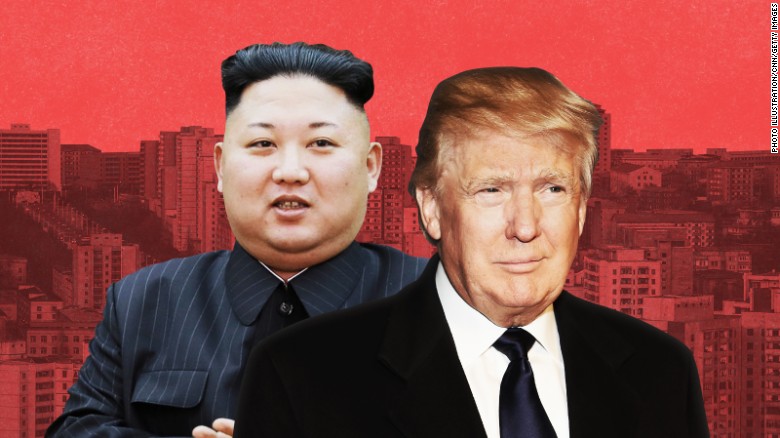The U.S. and the International Olympic Committee (IOC) have welcomed the possibility of talks between North and South Korea over Pyongyang’s participation in the Winter Olympics.
South Korea, which is hosting the Games, on Tuesday offered to hold high-level talks after North Korean leader Kim Jong-Un extended his country’s bitter rival a rare olive branch in order to discuss the Olympics.
“ Jong-Un now wants to talk to South Korea for first time,” Trump tweeted on Tuesday, using his nickname for Kim. “Perhaps that is good news, perhaps not – we will see!”
Sanctions and other pressure on the North Korean regime were “beginning to have a big impact,” Trump said.
Pyongyang is under some of the strongest sanctions ever imposed by the UN and U.S. after a series of missile and nuclear tests enraged world powers.
Also on Tuesday, the IOC said they would like to continue talks to “enable [North Korea’s] participation” in the Games – starting in Pyeongchang in South Korea in February – and would make a final decision at the appropriate time.
Jong-Un on Monday signalled a willingness to send a delegation to the Games.
“The Winter Games to be held in South Korea will be a good occasion for the country.
We sincerely hope that the Winter Olympics will be a success,” Yonhap reported Kim as saying.
“We are ready to take various steps, including the dispatch of the delegation. To this end, the two Koreas can immediately meet,” he added.
Seoul’s Unification Minister Cho Gyon then proposed that the two sides meet on Jan. 9 to discuss the Winter Olympics, in what would be the first meeting between the two governments in more than two years.
The Chinese Foreign Ministry said the mooted exchange between Seoul and Pyongyang was “a good thing.”
North and South Korea have been in a technical state of war since 1953, when a ceasefire came into force.
Talks have started multiple times since then to establish a formal peace treaty, but have always collapsed due to the acrimony on each side.
North Korea is enraged by the South’s reliance on the U.S., especially its decision to let U.S. troops be stationed there and its policy of conducting regular military drills with those troops.
It has also reacted badly to South Korean programmes to blast propaganda messages across the border by loudspeaker.
South Korea has, for its part, long complained about: North Korea’s unwillingness to allow family members separated by the war to have reunions and occasional kidnappings of South Korea citizens.
Others are sporadic shelling by North Korean armed forces and the North Korean nuclear missile programme.
Tensions escalated on the Korean peninsula over the course of 2017 as North Korea forged ahead with developing its missiles and nuclear weapons.
In December, the UN responded with its harshest sanctions yet against Pyongyang after the rogue state launched an intercontinental ballistic missile which it claims can reach the U.S. mainland.
Pyongyang has responded that it needs a nuclear programme to defend itself from any potential U.S. military measures.(dpa/NAN)

